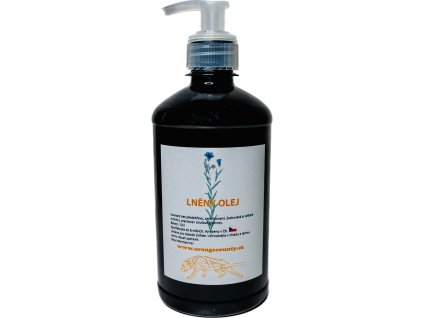KELP - BROWN SEAWEED
KELP - Brown seaweed - 200g. Kelp is a brown seaweed with a very high content of minerals and iodine. Strong support of natural immunity, antioxidant, support of digestion and pigmentation of the skin and coat, removes tartar and odor from the mouth. In our inland conditions, it is a unique source of iodine.
High content of calcium and iron in a perfectly digestible form!
The greatest source of natural iodine!
- Content of natural nutrients in 1 kg: Crude protein - 7%. Fat – 3.5%. Fiber - 8%. Coarse ash 24%. Carbohydrates 52%. Humidity 10%.
Vitamins in 1 kg: Beta carotene - 45 mg, B1 - 3.5 mg, B2 - 8 mg, B3 Niacin - 25 mg, B5 pantothemic acid - 63 mg, B6 - 2.30 mg, B12 - 4.5 mcg, B8 = Choline - 45 mg, C - 1100 mg., D3 - 443 mg., E - 235 mg, Folic acid - 0.4 mg.
Minerals in 1 kg: Calcium - 2%, Phosphorus - 0.5%, Sodium - 0.3%, Potassium - 0.25%, Magnesium - 0.7%, Sulfur - 1.3%, Copper - 10 mg, Iron – 650 mg, Zinc – 68 mg, Iodine – 500 mg.
- Characteristics: Kelps are algae belonging to the kelp family, which includes about thirty genera (we offer the genus Ascophyllum Nodosum). Kelps create extensive underwater growths, so-called kelp forests, in the shallow oceans. They appeared on earth about 23 million years ago. These algae need cooler, nutrient-rich saltwater between 6°C and 14°C to thrive. They grow very quickly, they can grow up to half a meter a day and grow 30 to 80 meters.
Effects on the organism:
- Kelp has perhaps the greatest benefit in its high iodine content, thus assisting in the production of thyroid hormones. Iodine is a volatile substance, so always keep Kelp hermetically sealed.
- It also significantly supports the body's natural immunity - it is a rich source of electrolytes (calcium, magnesium, potassium).
- It has strong antioxidant, antibacterial and antiviral effects, thereby increasing the body's regenerative capacity. Supports the immune system and proper calcium metabolism.
- Accelerates recovery after illness, surgery, or physical exertion. It supports the brain and brain functions - stimulant of brain functions (memory, concentration, cognitive functions, etc.). Suitable for training young dogs.
- It helps suppress and remove dental plaque and tartar by changing the enzymatic composition of saliva. It improves the condition of the coat and skin - it supports their proper pigmentation.
- Supports fat burning. Alginic acid, contained in kelp, has been shown to be, according to research, an effective means of losing weight.
- Detoxification of the organism and excretion of toxins from the body.
Kelpa has a green-brown color, a fine texture and a distinct, specific "sea" aroma, similar to dried seafood. Thanks to this fine structure, it also has high usability in the body.
- Possible uses: Kelp seaweed is a suitable dietary supplement for all breeds and categories of dogs. It is an ideal feed supplement, for example, when feeding raw food, so-called BARFing. In a dog's nutrition, it can play an important role in supplementing a wide range of highly digestible and otherwise difficult-to-access specific nutrients - especially minerals - calcium, trace elements - iodine and iron, vitamins, antioxidants and unsaturated fatty acids.
The limiting indicator for Kelp intake is the iodine content. In inland areas, iodine in food and in their sources is generally very little, rather a deficiency. However, the daily dose of iodine received by the organism should not exceed 400 mcg (micrograms), which according to the latest research carried out in the USA is the maximum daily dose that does not endanger the health of an individual. It follows from the fact that the maximum daily dose must already be below 400 micrograms of usable iodine by the body (but this is iodine actually received by the body). In breeding practice, this means that the dog should have (depending on the load) approx. 200 - 300 mcg of usable iodine per day. It should be taken into account that the availability of iodine from kelp is not 100%, but on average about 50%. The higher need for iodine in dogs depends on the intensity of the load and stress - e.g. during demanding races (pulling dogs), training, at work (rescuers), or during illness and in pregnant or lactating bitches.
- Dosage resulting from the above:
Dogs in home mode without constant load: When feeding twice a day, divide the dose in half at each feeding.
Dogs 5 - 30 kg: 0.6 - 1.2 g ( 1/4 - 1/2 teaspoon ) Kelpa algae / day.
Dogs under 5 kg: 0.6 g / day.
Dogs over 30 kg: 1.5 - 2.5 g / day (slightly to fully heaped teaspoon)
In very active or working dogs under load, in case of stress, damaged fur and skin, pregnant and lactating bitches:
- Acute, short-term up to 1 week (in extreme stress, before races - draft dogs, with acute iodine deficiency, malnutrition): 2 - 4 g / 25 kg of weight / day. When feeding twice a day, divide the dose in half at each feeding.
- Preventive, long-term - months (high load, to improve health, during recovery, etc.): 1 - 2 g / 25 kg of dog's weight / day. The combination with Salmon oil is also ideal.
- Practical use: Sprinkle Kelp on wet food - meat, cooked vegetables, rice, pasta, or on slightly moistened granules and mix everything. Thanks to the smell of the sea, the vast majority of dogs accept it without any problems.
ATTENTION: In white breeds of show dogs, regular, long-term use of Kelpa may cause temporary, unwanted coloration of the coat. After the dosage is interrupted, any resulting discoloration will disappear within approx. 2-3 weeks.
Storage and consumption: Due to the gradual volatility (evaporation) of iodine, store Kelp in hermetically sealed packages, in a dry and dark place, without direct sunlight on the package, at a temperature of up to about 20 °C. Consume within 12 months of purchase. Over-freezing or short heat treatment (scalding) does not affect the quality of the product.
| Category: | Dietary Supplements |
|---|
Be the first who will post an article to this item!










